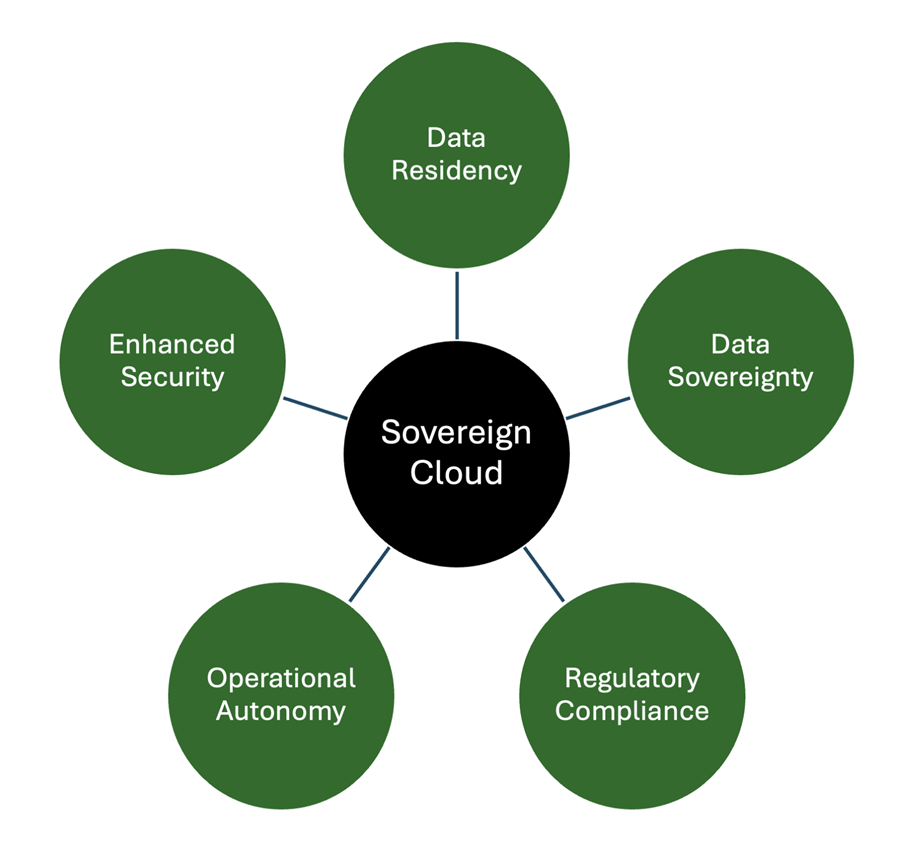The digital era demands that organizations harness the power of advanced cloud platforms while adhering to regulatory frameworks, particularly in Europe. Commercial enterprises and governmental bodies alike have shown hesitance towards cloud adoption, primarily due to the legal uncertainties highlighted by the Schrems and Schrems II rulings. These rulings have intensified concerns over data sovereignty and security, leading to increased scrutiny over where and how data is stored. To mitigate these issues, sovereign cloud services have emerged as a crucial solution, ensuring compliance without compromising on technological advancements.
What is a Sovereign Cloud?
So, what is a sovereign cloud, and how sovereign can sovereign be? Essentially, it’s a cloud environment designed to adhere to the strict data residency, privacy, and regulatory requirements of a specific country. Data is stored and managed within the country’s borders, ensuring it’s governed by local laws. This approach provides high levels of security and compliance, making it ideal for governmental and highly regulated industries. By leveraging sovereign clouds, organizations can enjoy advanced cloud services without the legal and security concerns tied to foreign data management.

Figure 1: Key principles of a sovereign cloud
The Contenders in the Sovereign Cloud Market
When it comes to meeting the high standards of sovereign cloud, Microsoft, Google, IBM, Oracle, Salesforce, Alibaba, SAP, VMware, Atos, T-Systems, and Capgemini all claim promising solutions for the European markets. Microsoft’s Cloud for Sovereignty stands out, alongside Google’s partnership with T-Systems and Oracle’s EU Sovereign Cloud. However, potential customers must verify just how sovereign these solutions truly are. It’s crucial to ensure they meet the needs of highly regulated commercial entities and governmental organizations. Remember, all that glitters may not be sovereign enough.
Enter: AWS
A few years ago, AWS wasn’t keen on the sovereign cloud concept, with their Chief Security Officer, Stephen Schmidt, referring to it as “a marketing term more than anything else.” (Source) AWS believed their existing infrastructure already met most regulatory requirements.
A few days ago, this changed dramatically: AWS is making a bold move with its European Sovereign Cloud, committing €7.8 billion to launch by the end of 2025 in Brandenburg, Germany. This cloud environment will be entirely separate from other AWS regions, ensuring all data and operations remain within the EU. By leveraging the powerful AWS Nitro System, it promises unmatched security and compliance for European customers. This significant investment also includes job creation and skills development, aiming to support highly regulated industries and government organizations in meeting stringent data sovereignty requirements.
AWS might be a latecomer to the sovereign cloud market, but their €7.8 billion investment in the AWS European Sovereign Cloud signals a significant shift in their strategy. Clearly, something has changed in their perception, pushing them to heavily invest to meet the stringent demands of European regulatory and data sovereignty needs.
Impact on Gaia-X
What does this move by AWS mean for the Gaia-X initiative? Gaia-X itself is all about creating a federated and secure data infrastructure with a focus on data sovereignty, transparency, and interoperability with a European touch. AWS is a day-1 member of the Gaia-X group actively supporting this initiative and involved in multiple Gaia-X working groups. AWS’s late but powerful entry into the sovereign cloud market could either support Gaia-X’s efforts by adding robust infrastructure or challenge Gaia-X’s collaborative nature with its sheer scale and resources. Will AWS complement or overshadow Gaia-X’s goals, with both approaches navigating the evolving landscape of digital sovereignty in Europe?
Evaluating the Investment
So, what is the real value behind this massive expenditure? Does it truly address the stringent data sovereignty and compliance needs of German and EU customers? Additionally, will this substantial investment be sufficient from their perspective, given their high standards for data security and regulatory compliance? Moreover, how will government and public services perceive this development? Will they see AWS’s efforts as enough to meet their unique demands, or will there still be skepticism about the adequacy of these measures? These questions are pivotal as AWS attempts to secure its foothold in this highly regulated market.
Why now, and why with such a massive investment? Is AWS catching up with the market, or are they trying to overshadow the competition with sheer force? This Billion-Euro commitment suggests a strategic pivot: AWS might be late to the sovereign cloud game, but they’re going all-in, potentially to avoid losing market share to local providers and those already “there”. The real question is, will this investment finally deliver solutions to meet the high standards of German and EU customers by the end of 2025?
AWS’s extensive plans include not only building and operating the AWS European Sovereign Cloud but also creating numerous high-skilled jobs and collaborating with local communities on innovative programs. This initiative aims to accelerate productivity, empower digital transformation, and contribute significantly to Germany’s GDP. However, AWS needs to ensure they can deliver from their (actually rather late) “day one” meeting both the technical and regulatory demands of a highly competitive and scrutinized market.


















































